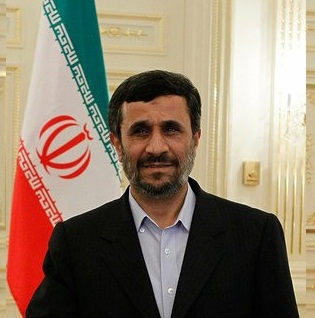The Diplomacy Cable 04/17/2017
The Diplomacy Cable
With the invention of the telegraph cables in the 19th century, international consulates and embassies began sending shorter encrypted telegrams, using Morse Code. While the messages are now sent electronically, the moniker “cable” stuck and the term is still in use today for shorter, encrypted diplomatic messages.
Iran’s Comeback Kid
Former president of Iran Mahmoud Ahmadinejad has registered to run in the presidential election this May. According to Reuters, the Supreme Leader of Iran warned Ahmadinejad not to enter the race, but he considered this to be “just advice.” However, Ahmadinejad may have prices to pay for defying the wishes of the Supreme Leader, and analysts say that the Supreme Leader “will not forget this move.”
–
Endangered Indigenous Languages
In a remote community in Australia’s Northern Territory, the last native Ngandi speaker is working to pass on the language to the younger generations. There are six other endangered languages in the region, and the main language spoken is Kriol. ABC reports that Grant Mathumba Thompson did not have the opportunity to learn this endangered language while he was growing up, and now he feels a certain responsibility to teach it to the younger generations.
–
North Korea and the Nuclear Situation
North Korea’s deputy UN ambassador has accused the US of turning the Korean-Peninsula into “the world’s biggest hotspot”. According to ABC, as North Korea moves to improve its weapons development, tensions have escalated. Last year, North Korea has conducted two nuclear tests and 24 ballistic missile tests.
–
Erdogan Denounces the West
Turkish President Tayyip Erdogan, who recently won new powers in a referendum, has suffered criticism from European monitors. Erdogan told foreign election observers that they should “know their place,” reports Reuters. He has argued that in order to maintain stability within the country, a concentration of power is needed.
–
G7 Meeting in Lucca
During a meeting of the G7 meeting in Italy last week, members were unable to agree on a proposal from United Kingdom Foreign Secretary Boris Johnson for sanctions against Russia for supporting the Assad government even after the deadly chemical attacks. The BBC reports Italy’s foreign minister preferred to engage in talks with the Russians as opposed to “backing them into a corner,” and United States Secretary of State Rex Tillerson departed for Moscow after the G7 meeting for talks.
–
Diplomacy Fast Facts:
“The qualities of a diplomat are sleepless tact, unmovable calmness and a patience that no folly, no provocation, no blunders may shake.” Who said this?
Benjamin Franklin.
–
Patricia Mace is a second semester graduate student at Seton Hall University. She is currently pursuing her master’s degree in Diplomacy and International Relations with a specialization in global negotiation and conflict management. She received her undergraduate degree in History, Japanese, and International Relations from University of Delaware.
Erin Dobbs is a second year graduate student at Seton Hall University. She is pursuing her master’s degree in diplomacy and international relations with specializations in foreign policy analysis and global negotiation and conflict management. She received her undergraduate degree in political science and history from Villanova University.
Follow the Journal of Diplomacy on Twitter at @JournalofDiplo

